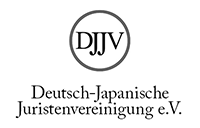Strukturierung des öffentlichen Einflusses in deutschen Privatisierungsverträgen
Abstract
Privatization activities in Germany in the past 60 years have had various reasons and followed different concepts. The problem of how to ensure the protection of state interests, therefore, does not arise in every privatization case, but only where the corporation fulfills sovereign tasks. In such cases, it is also necessary to guarantee state influence after formal or substantial privatization because the state is under a legal obligation to provide for basic needs. Government may ensure influence by means of company law, private law, or by enacting laws or ordinances itself. If privatization is purely formal – i.e., founding a company whose sole shareholder is the state – the state has such rights as provided for by company law. Especially if the corporation is structured as a limited liability company (GmbH), the state has effective instruments to control its business policy. If, however, the enterprise is structured as a stock corporation, care has to be taken to tie the object of the corporation to the fulfillment of the specified sovereign tasks when formulating the articles of association. Also, the state has to consider majority requirements as laid down by law or the articles of association when deciding which share to hold in the corporation. The reason for this is that the strict case law of the ECJ on golden shares allows for hardly any special rights of the state, such as requiring its consent or reserving it a seat on the supervisory board.
In the case of functional privatization, as in the wide field of private public partnership (PPP) projects, the state has the instruments of contract law at its disposal. Effective state influence depends on the state’s rights to access and the enterprise’s duties to inform. In many areas, PPP projects are an efficient means to fulfill public tasks. Problems occur, however, if the private tenderer pushes through contract terms which endanger the effective pursuance of state interests.
In sectors where material privatization and the dissolution of a former state monopoly are aimed at, public interests may have to be ensured by mandatory regulations. In this case, not only state interests in sufficient supply of the services in question but also open competition in the relevant markets have to be taken into consideration.
(The Editors)






